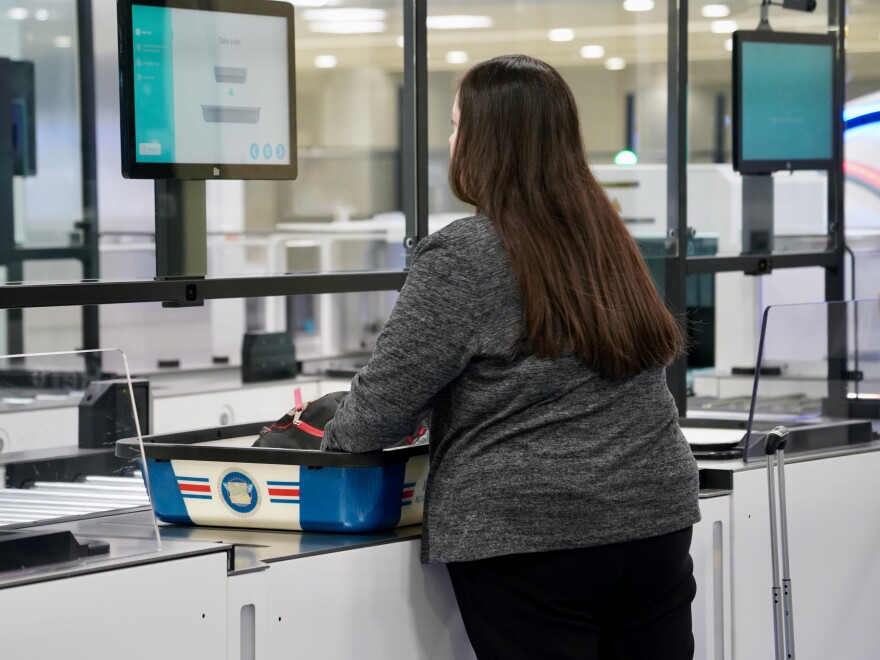Updated March 8, 2024 at 2:10 PM ET
An experimental self-service screening system for airport security checkpoints is being unveiled for testing starting this month, the Transportation Security Administration (TSA) announced on Wednesday in a press release.
TSA PreCheck passengers at the Harry Reid International Airport in Las Vegas — which has the one and only "Innovation Checkpoint" — will be the first to have the option to use the new system, which has been compared to the self-checkout at a grocery store.
"The prototype has a video monitor that provides step-by-step instructions for passengers to complete screening at their own pace," according to the release.
It eliminates the need for Transportation Security Officers (TSO) to pick up carry-on bags and trays as well as the need to move passengers to a secondary screening if a bag triggers an alarm. Typically there are five to seven TSOs at each checkpoint, but for the self-service screening system prototype, there will be two.
Essentially, the system incorporates primary and secondary screening in the same conveyor belt system.
But some aviation security experts express skepticism. Jeff Price says that while he is happy with the automated systems in place as well as upgraded screening equipment, he believes that having fewer officers at the checkpoint will cause problems.
"I'm really not a proponent of letting people just wander through a checkpoint and figure it out for themselves," he said. "You're going to watch the lines back up out the door."
He says the video instruction available will likely be insufficient, as leisure passengers who travel perhaps once a year will need someone in person explaining what to do.
Price adds that reducing security personnel at the checkpoint reduces "the number of eyes on people that could be watching for suspicious activity."
At the moment, the technology is just a prototype and not being deployed anywhere else, a TSA spokesperson says. It's also purely optional.
"The number of airline passengers continues to increase year-over-year, creating a need for innovative screening solutions that enhance transportation security and make traveling more efficient," said U.S. Department of Homeland Security Under Secretary for Science and Technology Dr. Dimitri Kusnezov in the statement.
Copyright 2024 NPR. To see more, visit https://www.npr.org.





